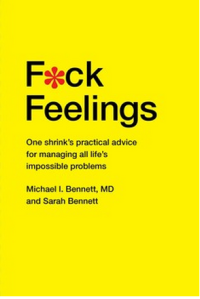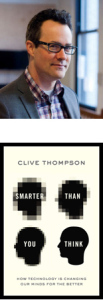David McRaney's Blog, page 28
November 25, 2015
YANSS 063 – How search engines make us feel smarter than we really are
You’ve likely wondered if the internet is having a negative effect on your brain. Perhaps you’ve thought this after realizing the world wide web now serves as a trusty resource when gaps in your knowledge appear, and over time it, you’ve thought, maybe it might be making you less knowledgeable overall because you habitually head to Google if you don’t know the answers to something, search, click, read a few lines, and then promptly forget the factoid until the next time you need it.

Download – iTunes – Stitcher –RSS – Soundcloud
This episode is brought to you by The Great Courses. Get 80 percent off Understanding the Mysteries of Human Behavior presented by Professor Mark Leary along with many other fantastic lecture series by visiting this link and ordering today!
Support the show directly by becoming a patron! Get episodes one-day-early and ad-free. Head over to the YANSS Patreon Page for more details.

Fearing that new technology will lead to lazy thinking is an old concern, one that goes back at least as far as Socrates who was certain that scrolls would make people dumb because they would grow to depend on “external written characters” instead of memorization. Just about every new technology and medium has been vilified at some point by that era’s luddites as finally being the end of deep thinking and the beginning of idiocracy. It never happens, of course, and I doubt it ever will.
The latest research suggest that though technology probably doesn’t make us stupid, it can, however, cause us to believe that we are smarter than we really are. Knowing you can search the internet is similar to knowing that you can consult a dictionary or a home encyclopedia or make a visit to the library when truly puzzled – but it’s different in that your brain, and the brains of every other cybercitizen, has become accustomed to the power to almost effortlessly reach into the internet and in a second or two bring back the info previously missing from your head, and you can do that mid-conversation, or while driving, or in the subway or on the couch or in line for a concert. That effortlessness and in-our-pockets availability seems to deeply affect how we categorize what is in our heads and what is not. When we consider all there is to know about a given subject, the convenience of search engines seems to blur the way we think about what we do and do not personally know about the world.
 According to the early studies of researcher Matthew Fisher, the side effect of a familiarity with search engines is an inflated sense of internal knowledge. Habitual googling leads us to mistakenly believe we know more than we actually do about any given subject – and here is the crazy part – that intuition persists even in moments in which we no longer have access to the internet. The more you use Google, it seems, the smarter you feel without it.
According to the early studies of researcher Matthew Fisher, the side effect of a familiarity with search engines is an inflated sense of internal knowledge. Habitual googling leads us to mistakenly believe we know more than we actually do about any given subject – and here is the crazy part – that intuition persists even in moments in which we no longer have access to the internet. The more you use Google, it seems, the smarter you feel without it.
In this episode we explore what happens when a human mind becomes aware that it can instantly, on-command, at any time, search for an answer to any question, and then, most of time, find it.
After the interview, I discuss a new study that suggests having a Facebook account raises your cortisol levels way higher than normal, but interacting with Facebook in a positive way then lowers those levels to normal. Basically, it’s like smoking. It introduces a stressor that it then reduces. It’s the sickness AND the cure.
In every episode, after I read a bit of self delusion news, I taste a cookie baked from a recipe sent in by a listener/reader. That listener/reader wins a signed copy of my new book, “You Are Now Less Dumb,” and I post the recipe on the YANSS Pinterest page. This episode’s winner is Jon Edwards who submitted a recipe for metacookies, or cookies inside of cookies. Send your own recipes to david {at} youarenotsosmart.com.
Links and Sources
Download – iTunes – Stitcher –RSS – Soundcloud
Searching for Explanations: How the Internet Inflates Estimates of
Internal Knowledge
Liking on Facebook good for teens’ stress, but being liked… not so much
Image Source: Internet: First Discovery Books

November 9, 2015
YANSS 062 – Why you often believe people who see the world differently are wrong
In psychology they call thinking that you see the world as it truly is, free from bias or the limitations of your senses, naive realism.
According to our guest in this episode, famed psychologist Lee Ross, naive realism also leads you to believe you arrived at your opinions, political or otherwise, after careful, rational analysis through unmediated thoughts and perceptions. In other words, you think you have been mainlining pure reality for years, and like Gandalf studying ancient texts, your intense study of the bare facts is what has naturally led to your conclusions.

Download – iTunes – Stitcher – RSS – Soundcloud
This episode is brought to you by The Great Courses. Get 80 percent off Understanding the Mysteries of Human Behavior presented by Professor Mark Leary along with many other fantastic lecture series by visiting this link and ordering today!
This episode of You Are Not So Smart is also brought to you by Squarespace, the all-in-one platform that makes it fast and easy to create your own professional website or online portfolio. For a free trial and 10 percent off, go to Squarespace.com and use the offer code SOSMART.
Support the show directly by becoming a patron! Get episodes one-day-early and ad-free. Head over to the YANSS Patreon Page for more details.

As Ross points out in the interview, your personal reality isn’t the perception of what is “out there,” but an observation of what is going on inside your head. Bertrand Russell put it like this, “The observer, when he seems to himself to be observing a stone, is really, if physics is to be believed, observing the effects of the stone upon himself,” a point illustrated by this static, non-moving image (mobile readers click this for bigger version):

Your brain takes in the information from your senses, but your reality isn’t made up of the atoms of the “real world.” It’s made up of the atoms of your brain. It’s an interaction, a conjuring. Among those brain atoms, the picture is moving, but here is the kicker, since every human brain will make this picture move within the subjective reality of each person looking at it, there is no human reality in which the image isn’t moving. There’s no objective stance, perceptually speaking. According to Ross, our political realities are no different than that swirling mass which isn’t really swirling. On most emotionally charged issues, there is no objective perspective that a brain can take, despite the fact all the people on each side of any debate believe their side is the one rooted in reality.
Ross says that since you believe you are in the really-real, true reality, you also believe that you have been extremely careful and devoted to sticking to the facts and thus are free from bias and impervious to persuasion. Anyone else who has read the things you have read or seen the things you have seen will naturally see things your way, given that they’ve pondered the matter as thoughtfully as you have. Therefore, you assume, anyone who disagrees with your political opinions probably just doesn’t have all the facts yet. If they had, they’d already be seeing the world like you do. This is why you continue to ineffectually copy and paste links from all our most trusted sources when arguing your points with those who seem misguided, crazy, uninformed, and just plain wrong. The problem is, this is exactly what the other side thinks will work on you.
Lee Ross was one of the first psychologists to study naive realism, and he writes about it in a new his book ,co-written with Tom Gilovitch, titled The Wisest One in the Room. In the original paper, co-written with Andrew Ward in 1995, the two scientists concluded that naive realism leads people to approach political arguments with the confidence that “rational open-minded discourse” will naturally lead to a rapid narrowing of disagreement, but that confidence is usually short-lived.
 When confronted with people who disagree with your estimations of reality, even after you’ve pushed a bunch of facts in their faces, you tend to assume there must be a rational explanation for why they think and feel the way they do. Usually, that explanation is that the other side is either lazy or stupid or corrupted by some nefarious information-scrambling entity like cable news, a blowhard pundit, a charming pastor, or a lack thereof. Since this is where we often end up, they say what usually happens is that our “repeated attempts at dialogue with those on the ‘other side’ of a contentious issue make us aware that they rarely yield to our attempts at enlightenment; nor do they yield to the efforts of articulate, fair-minded spokespersons who share our views.” In other words, it’s naive to think evidence presented from the sources you trust will sway your opponents because when they do the same, it never sways you.
When confronted with people who disagree with your estimations of reality, even after you’ve pushed a bunch of facts in their faces, you tend to assume there must be a rational explanation for why they think and feel the way they do. Usually, that explanation is that the other side is either lazy or stupid or corrupted by some nefarious information-scrambling entity like cable news, a blowhard pundit, a charming pastor, or a lack thereof. Since this is where we often end up, they say what usually happens is that our “repeated attempts at dialogue with those on the ‘other side’ of a contentious issue make us aware that they rarely yield to our attempts at enlightenment; nor do they yield to the efforts of articulate, fair-minded spokespersons who share our views.” In other words, it’s naive to think evidence presented from the sources you trust will sway your opponents because when they do the same, it never sways you.
Listen in this episode as psychologist Lee Ross explains how to identify, avoid, and combat this most pernicious of cognitive mistakes.
After the interview, I discuss a new study that found people are much more critical of other people’s arguments than they are of their own, unless tricked to think one of their old arguments was someone else’s.
 In every episode, after I read a bit of self delusion news, I taste a cookie baked from a recipe sent in by a listener/reader. That listener/reader wins a signed copy of my new book, “You Are Now Less Dumb,” and I post the recipe on the YANSS Pinterest page. This episode’s winner is Jennifer Foote who submitted a recipe for frostbitten molasses cookies entombed in ginger. Send your own recipes to david {at} youarenotsosmart.com.
In every episode, after I read a bit of self delusion news, I taste a cookie baked from a recipe sent in by a listener/reader. That listener/reader wins a signed copy of my new book, “You Are Now Less Dumb,” and I post the recipe on the YANSS Pinterest page. This episode’s winner is Jennifer Foote who submitted a recipe for frostbitten molasses cookies entombed in ginger. Send your own recipes to david {at} youarenotsosmart.com.
Links and Sources
Download – iTunes – Stitcher – RSS – Soundcloud
Paper: The Selective Laziness of Reasoning
Neuroskeptic – The Selective Laziness of Reasoning
Consciousness Image: http://bit.ly/1GTwCEu
Illusion Image by Paul Nasca: http://bit.ly/1GTwHbc

October 23, 2015
YANSS 061: How to willfully alter your brain’s ability to willfully alter your brain’s abilities
In a way, you can simply will yourself into a new physical form – that is if you use your will to routinely move heavy things, run around, or eat fewer tacos.
Just as you can change your body at the atomic level by lifting weights, exercising, or eating differently, you can willfully alter your brain by performing another physical act: thinking in a certain way.

Download – iTunes – Stitcher – RSS – Soundcloud
This episode is brought to you by The Great Courses. Get 80 percent off The Art of Critical Decision Making presented by Professor Michael A. Roberto along with many other fantastic lecture series by visiting this link and ordering today!
This episode of You Are Not So Smart is also brought to you by Squarespace, the all-in-one platform that makes it fast and easy to create your own professional website or online portfolio. For a free trial and 10 percent off, go to Squarespace.com and use the offer code SOSMART.
Support the show directly by becoming a patron! Get episodes one-day-early and ad-free. Head over to the YANSS Patreon Page for more details.

 In this episode we explore using your brain to change your brain at the level of your neurons and synapses.
In this episode we explore using your brain to change your brain at the level of your neurons and synapses.
Of course, self-directed neuroplasticity isn’t a new whoa-dude-bong-hit idea. It has been possible through other methods like learning a new language or earning a degree in chemistry for, well, since there have been brains. But as author and meditation teacher Michael Taft explains in the episode, the evidence seems to suggest that with mindfulness meditation one can achieve a level of brain shaping and pruning that would be impossible otherwise.
In his new book, The Mindful Geek, he writes that the more you attempt to focus, the better you get at focusing on command, and so a real change begins taking place – you slowly become able to think differently, to hold thoughts differently and to dismiss thoughts that before led to attention difficulties or unwanted thoughts and clutter – and that’s not magical or the result of shaking hands with a deity, he says. It’s biological. In the interview, Michael explains the benefits of the secular, scientific practice of modern mindfulness meditation
After the interview, I discuss a news story about how using simple language makes you seem more intelligent, and using complex, esoteric words makes you seem like a doofus masquerading as a smarty pants.
In every episode, after I read a bit of self delusion news, I taste a cookie baked from a recipe sent in by a listener/reader. That listener/reader wins a signed copy of my new book, “You Are Now Less Dumb,” and I post the recipe on the YANSS Pinterest page. This episode’s winner is Nick Bahrdunn who submitted a recipe for spiced pecan chocolate chip cookies. Send your own recipes to david {at} youarenotsosmart.com.
Links and Sources
Download – iTunes – Stitcher – RSS – Soundcloud
Mindfulness: From the monastery to the startup
The Secret to Sounding Smart? Using Simple Language

October 14, 2015
YANSS 60 – How to turn your fears and anxieties into positivity and productivity with cognitive reframing
Reframing is one of those psychological tools that just plain works. It’s practical, simple, and with practice and repetition it often leads to real change in people with a variety of thinking problems.
It works because we rarely question our own interpretations, the meanings we construct when examining a set of facts, or our own introspections of internal emotional states. So much of the things the anxiety and fear we feel when anticipating the future is just the result of plucking from a grab bag of best guesses and assumptions, shaky models of reality that may or may not be accurate and will likely pan out much differently than we predict.

Download – iTunes – Stitcher – RSS – Soundcloud
This episode is brought to you by The Great Courses. Get 80 percent off Understanding the Mysteries of Human Behavior presented by Professor Mark Leary along with many other fantastic lecture series by visiting this link and ordering today!
This episode is sponsored by Wealthfront, the automated investment
service that makes it easy to invest your money the right way. Visit this link to to get your first $10,000 managed for free.
This episode of You Are Not So Smart is also brought to you by Squarespace, the all-in-one platform that makes it fast and easy to create your own professional website or online portfolio. For a free trial and 10 percent off, go to Squarespace.com and use the offer code SOSMART.
Support the show directly by becoming a patron! Get episodes one-day-early and ad-free. Head over to the YANSS Patreon Page for more details.

 In this episode, we meet Tom Bunn, a former commercial pilot who uses reframing to cure people of their fears of flying and Robert R. Morris, a startup CEO who is developing a social network to crowdsource mental health in which users reframe others people’s fears and anxious thoughts and in the process learn to reframe their own fruitless cognitive loops in their daily lives.
In this episode, we meet Tom Bunn, a former commercial pilot who uses reframing to cure people of their fears of flying and Robert R. Morris, a startup CEO who is developing a social network to crowdsource mental health in which users reframe others people’s fears and anxious thoughts and in the process learn to reframe their own fruitless cognitive loops in their daily lives. 
After the interview, I discuss a news story about how humanizing slot machines can encourage people to empty their pockets at casinos.
In every episode, after I read a bit of self delusion news, I taste a cookie baked from a recipe sent in by a listener/reader. That listener/reader wins a signed copy of my new book, “You Are Now Less Dumb,” and I post the recipe on the YANSS Pinterest page. This episode’s winner is Marion Low who submitted a recipe for Hertzoggies. Send your own recipes to david {at} youarenotsosmart.com.
Links and Sources
Download – iTunes – Stitcher – RSS – Soundcloud
Slot machines are more addictive when we see them as having human-like intentions
Photo Credit: http://bit.ly/1jOHlFI

YANSS 059 – How the illusion of control leads you to perpetually wait for your life to begin
Over the years, when most patients have first met psychiatrist Michael I. Bennett, they have tended to believe they would soon to get to know a trusted confidant who would sit quietly, listen intently, and eventually deliver something he says is scientifically impossible: a way to make all their bad feelings go away.
“I’d say, ‘Well, what’s your goal with this problem?’ explains Bennett. “And they would say, ‘Of course, it’s to feel better. It’s to improve it. It’s to solve it,’ and I’d be essentially saying, ‘Fuck that! That’s not going to happen.'”

Download – iTunes – Stitcher – RSS – Soundcloud
This episode is brought to you by The Great Courses. Get 80 percent off Understanding the Mysteries of Human Behavior presented by Professor Mark Leary along with many other fantastic lecture series by visiting this link and ordering today!
This episode is sponsored by Wealthfront, the automated investment
service that makes it easy to invest your money the right way. Visit this link to to get your first $10,000 managed for free.
This episode of You Are Not So Smart is also brought to you by Squarespace, the all-in-one platform that makes it fast and easy to create your own professional website or online portfolio. For a free trial and 10 percent off, go to Squarespace.com and use the offer code SOSMART.
Support the show directly by becoming a patron! Get episodes one-day-early and ad-free. Head over to the YANSS Patreon Page for more details.

In the show, you’ll hear Michael elaborate on why that is. In this episode, our guests are Harvard-trained psychiatrist Michael I. Bennett and his comedy writer daughter Sarah Bennett whose new book, Fuck Feelings, makes the case for accepting the illusion of control as a guiding principle for living a better life.
 Time and again, study after study, psychologists have found that in situations in which the outcomes are clearly, undoubtable random or otherwise outside the realm of control, people tend to latch onto any shred of evidence that could be interpreted otherwise. It’s a habit that can lead to self-loathing, ineffectual strategies for change, and lives filled with missed opportunities and squandered productivity.
Time and again, study after study, psychologists have found that in situations in which the outcomes are clearly, undoubtable random or otherwise outside the realm of control, people tend to latch onto any shred of evidence that could be interpreted otherwise. It’s a habit that can lead to self-loathing, ineffectual strategies for change, and lives filled with missed opportunities and squandered productivity.
As the Bennetts explain in the book, most people seek a therapist in an effort to actively deny that they don’t have any control over their emotions. Stuck in a neurotic, fruitless loop, people begin to wonder why they can’t achieve perpetual happiness or erase their proclivity to procrastinate. If they could just fix the things they see as broken, they could then become the people they’ve always wanted to be and finally begin their lives.
But just how much control do you really have over your feelings or your essential nature? According to the Bennetts, much less than you would like to believe. Your efforts are better spent elsewhere.
In this episode, listen as Michael and Sarah explain what you should be doing instead, and why they say – “Fuck feelings.”
After the interview, I discuss a news story about how people can be fooled into believing a meal is delicious when told a master chef cooked the meal.
In every episode, after I read a bit of self delusion news, I taste a cookie baked from a recipe sent in by a listener/reader. That listener/reader wins a signed copy of my new book, “You Are Now Less Dumb,” and I post the recipe on the YANSS Pinterest page. This episode’s winner is Tiffany R Carrell who submitted a recipe for buttermilk cookies. Send your own recipes to david {at} youarenotsosmart.com.
Links and Sources
Download – iTunes – Stitcher – RSS – Soundcloud
Can A Meal’s Presentation Change Your Perception Of Its Overall Quality?

YANSS 058 – Why technology isn’t making us dumb, in fact, it is making us smarter than you think
Is all this new technology improving our thinking or dampening it? Are all these new communication tools turning us into navel-gazing human/brand hybrids, or are we developing a new set of senses that allow us to benefit from never severing contact with the people most important to us?

Download – iTunes – Stitcher – RSS – Soundcloud
This episode is brought to you by The Great Courses. Get 80 percent off Understanding the Mysteries of Human Behavior presented by Professor Mark Leary along with many other fantastic lecture series by visiting this link and ordering today!
This episode is sponsored by Wealthfront, the automated investment
service that makes it easy to invest your money the right way. Visit this link to to get your first $10,000 managed for free.
This episode of You Are Not So Smart is also brought to you by Squarespace, the all-in-one platform that makes it fast and easy to create your own professional website or online portfolio. For a free trial and 10 percent off, go to Squarespace.com and use the offer code SOSMART.
Support the show directly by becoming a patron! Get episodes one-day-early and ad-free. Head over to the YANSS Patreon Page for more details.

 That’s the topic of this episode of the You Are Not So Smart Podcast, and to answer these questions we welcome this episode’s guest, Clive Thompson, who is the author of Smarter Than You Think: How Technology is Changing Our Minds for the Better.
That’s the topic of this episode of the You Are Not So Smart Podcast, and to answer these questions we welcome this episode’s guest, Clive Thompson, who is the author of Smarter Than You Think: How Technology is Changing Our Minds for the Better.
As the title suggests, he disagrees with the naysayers, and his book is an impressive investigation into why they are probably (thankfully) wrong. Thompson is a journalist whose work can be found published in Wired, The Washington Post, and the New York Times Magazine. You can learn more about him at his website.
After the interview, I discuss a news story about how teenagers are not as irrational as you may believe.
In every episode, after I read a bit of self delusion news, I taste a cookie baked from a recipe sent in by a listener/reader. That listener/reader wins a signed copy of my new book, “You Are Now Less Dumb,” and I post the recipe on the YANSS Pinterest page. This episode’s winner is Jay Ahern who submitted a recipe for Cooper Cakes. Send your own recipes to david {at} youarenotsosmart.com.
Links and Sources
Download – iTunes – Stitcher – RSS – Soundcloud
Teens are not Always Irrational

August 28, 2015
YANSS 057 – The lingering psychological impact of Hurricane Katrina
A few days after Hurricane Katrina erased the Mississippi Gulf Coast, I traveled down there in a truck with my uncle and aunt-in-law to help them salvage what they could from their home.
They lived close to the beach, just off the highway that runs parallel to the ocean through Gulfport, Biloxi, Pass Christian, Bay St. Louis, and Waveland. Katrina ravaged them all, tossing boats into neighborhoods, trees into houses, and houses into the streets. At the minimum, if you lived there, your home took in a few feet of the Gulf of Mexico leaving behind a crusty imprint on the lower half of your walls and deposits of goop on your toilets and in your bathtub. Looking at the imprint, you could rewind the events in your head based on the height of the water line. Beneath that line, everything was ruined, all piled up in the kitchen or the living room or in a hallway closet through some strange quirk of physics.

Download – iTunes – Stitcher – RSS – Soundcloud
This episode is brought to you by The Great Courses. Get 80 percent off Your Deceptive Mind taught by neurologist Steven Novella along with many other fantastic lecture series by visiting this link and ordering today!
This episode is sponsored by Wealthfront, the automated investment
service that makes it easy to invest your money the right way. Visit this link to to get your first $10,000 managed for free.
Support the show directly by becoming a patron! Get episodes one-day-early and ad-free. Head over to the YANSS Patreon Page for more details.

At the time, we lived an hour north. The eye passed over us, and the whole region around was smashed and crushed and ripped apart, mostly by trees. Every third house was skewered by a big pine, sometimes several, and most roads were blocked. It took several days filled with the sounds of chainsaws and generators before we could check on each other. The power was out, cellphones were crap, and the news was spotty and rumor-filled. We didn’t learn about New Orleans until about four days after Katrina. We used a generator to watch NBC Nightly News and saw images of people on rooftops, begging passing helicopters for mercy. I remember feeling ashamed and guilty, thinking about all the complaining we had done in those four days not knowing what was happening in our beloved New Orleans about an hour-and-a-half away.
Soon after we arrived at my in-laws’ home, we realized they wouldn’t be filling the truck with furniture. Everything they owned was saturated with muck. The sewage and the debris and the ocean and the chemicals of the modern world had created a slimy stew, and that stew had washed over everything. It squeezed out of the carpet as you walked around, and with the humidity and lack of a breeze, the aroma was oppressive. In the end, they just took a few ruined photo albums and a soggy high-school annual.
When I realized I wouldn’t be moving anything heavy, I walked across the street to take pictures of a casino that had been flung from far away into the motel next door. Both buildings’ interiors were exposed at the point where they had been married by the violence. To my left, beds and televisions and framed prints of flowers and landscapes, to my right, dormant neon advertisements for jackpots and signs for big winnings in Mardi-Gras colors above slot machines spilling out into a parking lot covered in insulation and bits of wall. Overhead, military helicopters. On the highway, humvees. In the streets, people walked around with vinyl records, framed photographs, and other spared bits of life before.
 A NYC firefighter shows us his tattoo. He arrived with another firefighter in a Red Cross truck as we salvaged things from my in-laws home along the Mississippi Gulf Coast following Hurricane Katrina.
A NYC firefighter shows us his tattoo. He arrived with another firefighter in a Red Cross truck as we salvaged things from my in-laws home along the Mississippi Gulf Coast following Hurricane Katrina.Right before we left, a Red Cross truck pulled up and out of it emerged two bald, burly NYC firefighters asking if we needed anything. We said we were ok, but they hung around to talk. They had driven all the way from New York. It still makes me weepy to think about it. I won’t bother you with the details. It mostly was small talk, but the best kind. Before they left, they posed for photos and gave us a pallet of bottled water. Soon after, we drove home.
It’s hard to believe that was 10 years ago. I have a hundred stories about Hurricane Katrina and the aftermath. Though we lost no loved ones, and our woes were tiny compared to the people of New Orleans, Waveland, and so many other places, everyone I know who lived through the storm feels that sickening drop in the stomach when the words “hurricane season” start to appear on Twitter and Facebook and the local news. I track every hurricane the second it appears, sending screenshots of the spaghetti plots to my wife. I call my parents to let them know they need to keep an eye on things once I see it edging close to the Gulf. I’ll probably do that for the rest of my life and theirs. I can only imagine what it must be like for the people who lost it all, or who waited for rescue, or who suffered for days in the Superdome or somewhere along the Gulf.
 In this episode of the You Are Not So Smart Podcast we explore the lingering effects of PTSD, especially on the people who lived through Katrina. You will hear an interview with Robert D. Laird, a psychologist at the University of New Orleans, who explains that the less control and the fewer options one has while facing a life-threatening situation, the more likely that person will develop PTSD symptoms. But, there is help. Modern therapy can successfully deal with this issue, and you will learn how in the show. In this episode we will also explore what causes PTSD, why it happens, what triggers the symptoms, and how to combat the effects.
In this episode of the You Are Not So Smart Podcast we explore the lingering effects of PTSD, especially on the people who lived through Katrina. You will hear an interview with Robert D. Laird, a psychologist at the University of New Orleans, who explains that the less control and the fewer options one has while facing a life-threatening situation, the more likely that person will develop PTSD symptoms. But, there is help. Modern therapy can successfully deal with this issue, and you will learn how in the show. In this episode we will also explore what causes PTSD, why it happens, what triggers the symptoms, and how to combat the effects.
After the interview, I discuss a news story about how search engines can alter the outcomes of major elections.
In every episode, after I read a bit of self delusion news, I taste a cookie baked from a recipe sent in by a listener/reader. That listener/reader wins a signed copy of my new book, “You Are Now Less Dumb,” and I post the recipe on the YANSS Pinterest page. This episode’s winner is Brian Brushwood who submitted a recipe for Lemon Angels. Send your own recipes to david {at} youarenotsosmart.com.
 A casino smashed into a motel along Hwy 90 on the Mississippi Gulf Coast following Katrina
A casino smashed into a motel along Hwy 90 on the Mississippi Gulf Coast following Katrina A NYC firefighter hands out out supplies on the Mississippi Gulf Coast in the days following Hurricane Katrina.
A NYC firefighter hands out out supplies on the Mississippi Gulf Coast in the days following Hurricane Katrina. The only thing left standing in my in-law’s home was this ironing board.
The only thing left standing in my in-law’s home was this ironing board. My inlaws’ kitchen after Katrina.
My inlaws’ kitchen after Katrina. The bottom floor of an office building along Hwy 90 on the Mississippi Gulf Coast following Hurricane Katrina.
The bottom floor of an office building along Hwy 90 on the Mississippi Gulf Coast following Hurricane Katrina.Links and Sources
Download – iTunes – Stitcher – RSS – Soundcloud
The Hurricane Katrina anniversary can bring on depression, PTSD
What Hurricane Katrina has taught us about ‘post-traumatic growth’
Internet search engines may be influencing elections

August 17, 2015
YANSS 056 – What magicians, con-artists, and scammers can teach us about humility and humanity
Before we had names for them or a science to study their impact, the people who could claim the most expertise on biases, fallacies, heuristics and all the other recently popularized quirks of human reasoning were scam artists, con artists, and magicians.
On this episode of the You Are Not So Smart Podcast, we discuss the folk practitioners of cognitive science with magician and scam expert Brian Brushwood. In the conversation, we explore a wide-range of ideas from how card tricks can be a gateway to better critical thinking to why most psychics end up tricking themselves into believing in their own bullshit. We also discuss why people fall for scams of all sizes, how to avoid them, and why most magicians can spot a fraudster a mile away.

Download – iTunes – Stitcher – RSS – Soundcloud
This episode is brought to you by The Great Courses. Get 80 percent off Your Deceptive Mind taught by neurologist Steven Novella along with many other fantastic lecture series by visiting this link and ordering today!
This episode is sponsored by Wealthfront, the automated investment
service that makes it easy to invest your money the right way. Visit this link to to get your first $10,000 managed for free.
Support the show directly by becoming a patron! Get episodes one-day-early and ad-free. Head over to the YANSS Patreon Page for more details.

 Brian Brushwood tours the world giving lectures that mix comedy with stage and close-up magic designed to deliver an overall message about how to better navigate a world filled with scams, frauds, pseudoscience, and paranormal beliefs. His video series, Scam School, teaches people to do the kind of easy-to-learn tricks that can win bets and score free stuff in bars and parties, and his new series on Nat Geo, Hacking the System, takes that concept and expands it to cover social engineering in everyday life. He hosts a number of podcasts, and his hair used to look a lot like Guile’s from Street Fighter.
Brian Brushwood tours the world giving lectures that mix comedy with stage and close-up magic designed to deliver an overall message about how to better navigate a world filled with scams, frauds, pseudoscience, and paranormal beliefs. His video series, Scam School, teaches people to do the kind of easy-to-learn tricks that can win bets and score free stuff in bars and parties, and his new series on Nat Geo, Hacking the System, takes that concept and expands it to cover social engineering in everyday life. He hosts a number of podcasts, and his hair used to look a lot like Guile’s from Street Fighter.
After the interview, I discuss a study that revealed Nigerian email scams are purposefully designed to look ridiculous so as to provide a better sorting mechanism for time-thrifty scam artists.
 In every episode, after I read a bit of self delusion news, I taste a cookie baked from a recipe sent in by a listener/reader. That listener/reader wins a signed copy of my new book, “You Are Now Less Dumb,” and I post the recipe on the YANSS Pinterest page. This episode’s winner is Jonathan Whitaker who submitted a recipe for Date Fingers. Send your own recipes to david {at} youarenotsosmart.com.
In every episode, after I read a bit of self delusion news, I taste a cookie baked from a recipe sent in by a listener/reader. That listener/reader wins a signed copy of my new book, “You Are Now Less Dumb,” and I post the recipe on the YANSS Pinterest page. This episode’s winner is Jonathan Whitaker who submitted a recipe for Date Fingers. Send your own recipes to david {at} youarenotsosmart.com.

Links and Sources
Download – iTunes – Stitcher – RSS – Soundcloud
Scams, Sasquatch, and the Supernatural
Why do Nigerian Scammers Say They are from Nigeria?
Why We Should Scam the Scammers
Photo: Public Domain via The British Library

August 4, 2015
YANSS 055 – Psychology’s long obsession with the WEIRDest people in the world
Is psychology too WEIRD?
That’s what this episode’s guest, psychologist Steven J. Heine, suggested when he and his colleagues published a paper revealing that psychology wasn’t the study of the human mind, but the study of one kind of human mind, the sort of mind generated by the kinds of brains that happen to be conveniently located near the places where research is usually conducted.
When you hear about “subjects” in a psychology paper, those subjects are almost always North American college undergraduates or students from Australia or the UK, members of a cohort many scientists now label as the WEIRDest people in the world, short for Western, Education, Industrial, Rich, and Democratic – the kind of people who make up less than 15 percent of the world’s population.
 Our guest, Steven J. Heine, was one of the authors of a paper that lead to psychology’s greatest epiphany in decades, many (if not all) of the human universals discovered in all of field’s most famous experiments are actually universals among only one demographic, not the entire human species. It was kind of like biologists suddenly learning they had based their entire science just on the animals living in a single cave in Montana.
Our guest, Steven J. Heine, was one of the authors of a paper that lead to psychology’s greatest epiphany in decades, many (if not all) of the human universals discovered in all of field’s most famous experiments are actually universals among only one demographic, not the entire human species. It was kind of like biologists suddenly learning they had based their entire science just on the animals living in a single cave in Montana.
In this episode, you’ll learn why it took so long to figure out it was studying outliers, and what it means for the future of psychology, neuroscience, and many other fields attempting that study human beings as a whole.

Download – iTunes – Stitcher – RSS – Soundcloud
This episode is brought to you by The Great Courses. Get 80 percent off Your Deceptive Mind taught by neurologist Steven Novella along with many other fantastic lecture series by visiting this link and ordering today!
This episode is sponsored byWealthfront, the automated investment
service that makes it easy to invest your money the right way. Visit this link to to get your first $10,000 managed for free.
Support the show directly by becoming a patron! Get episodes one-day-early and ad-free. Head over to the YANSS Patreon Page for more details.

After the interview, I discuss a news story about how just two questions can determine how well a commercial airline pilot will handle a dangerous situation.
In every episode, after I read a bit of self delusion news, I taste a cookie baked from a recipe sent in by a listener/reader. That listener/reader wins a signed copy of my new book, “You Are Now Less Dumb,” and I post the recipe on the YANSS Pinterest page. This episode’s winner is Terrence Rogers who submitted a recipe for Oatmeal Candy Bacon Cookies with Bourbon, Apple Cider, Maple Syrup Frosting and Sea Salt. Send your own recipes to david {at} youarenotsosmart.com.
Links and Sources
Download – iTunes – Stitcher – RSS – Soundcloud
Just two questions predict how well a pilot will handle an emergency
Individual reactions to stress predict performance during a critical aviation incident
The weirdest people in the world?
We agree it’s WEIRD, but is it WEIRD enough?
Cognitive modulation of olfactory processing

July 20, 2015
YANSS 054 – The self who wasn’t there
Is the person you believe to be the protagonist of your life’s story real, or do you daily witness the unfolding tale of a completely fictional character? In other words, is your very self something concrete, or is it as illusory as a daydream?
 According to psychologist Bruce Hood, the person at the center of your life isn’t really there; it’s all neurological smoke and mirrors. Sure, you have the sensation that you have a self, and that sensation is real, but the beliefs and ideas that spring from it are not. Learn all about it in this and how it shapes your life in this episode in which you’ll hear some new material mixed with a rebroadcast of episode four’s interview with the author of The Self Illusion, Bruce Hood, professor of developmental psychology in society in the School of Experimental Psychology at the University of Bristol. Check out his website here.
According to psychologist Bruce Hood, the person at the center of your life isn’t really there; it’s all neurological smoke and mirrors. Sure, you have the sensation that you have a self, and that sensation is real, but the beliefs and ideas that spring from it are not. Learn all about it in this and how it shapes your life in this episode in which you’ll hear some new material mixed with a rebroadcast of episode four’s interview with the author of The Self Illusion, Bruce Hood, professor of developmental psychology in society in the School of Experimental Psychology at the University of Bristol. Check out his website here.
After the interview, I discuss a news story about how once the brain has decoding a scrambled message you can never unhear the decrypted version of the sound.
In every episode, after I read a bit of self delusion news, I taste a cookie baked from a recipe sent in by a listener/reader. That listener/reader wins a signed copy of my new book, “You Are Now Less Dumb,” and I post the recipe on the YANSS Pinterest page. This episode’s winner is Mary Nir who submitted a recipe for Stellar Orange and Peanut Butter Cookies. Send your own recipes to david {at} youarenotsosmart.com.

Download – iTunes – Stitcher – RSS – Soundcloud
This episode is brought to you by The Great Courses. Get 80 percent off Behavioral Economics: When Psychology and Economics Collide taught by Professor Scott Huettel along with many other fantastic lecture series by visiting this link and ordering today! Offer code SOSMART.
This episode is sponsored by Wealthfront, the automated investment
service that makes it easy to invest your money the right way. Visit this link to to get your first $10,000 managed for free. Offer code SOSMART.
This episode of You Are Not So Smart is also brought to you by Squarespace, the all-in-one platform that makes it fast and easy to create your own professional website or online portfolio. For a free trial and 10 percent off, go to Squarespace.com and use the offer code SOSMART.
Support the show directly by becoming a patron! Get episodes one-day-early and ad-free. Head over to the YANSS Patreon Page for more details.

Links and Sources
Download – iTunes – Stitcher – RSS – Soundcloud
A Sound You Can’t Unhear (and What It Says About Your Brain)
Image: CC via Jennifer Garcia

David McRaney's Blog
- David McRaney's profile
- 582 followers



